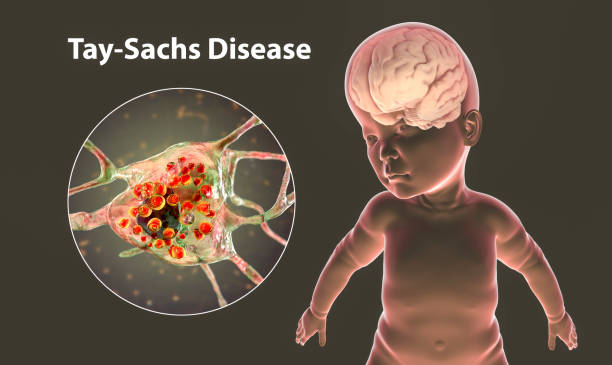Inherited diseases are diseases caused by genetic mutations that are passed down from one generation to the next and can result in a wide range of health problems, from chronic illnesses to life-threatening conditions.
Nigeria, like many other countries, has a high prevalence of inherited diseases. Inherited diseases, also known as genetic disorders, are caused by defects in genes passed down from parents to their offspring.
These diseases can have a significant impact on an individual’s health and quality of life.
Due to a lack of awareness and limited access to genetic testing and counseling, many Nigerians are unaware of their risk of developing inherited diseases or passing them on to their children.
In this article, we’ll explore some of the most common inherited diseases in Nigeria, their causes, and the available treatments.
1. Sickle Cell Anaemia
Sickle cell anaemia is one of the most prevalent inherited diseases in Nigeria. It is caused by a genetic defect in the hemoglobin gene, which leads to the production of abnormal haemoglobin.
According to a study, about 50 million people are living with Sickle Cell Disease globally and Nigeria is the epicentre zone with about 4 to 6 million people living with the disease (1 in every 4 Nigerians has a sickle trait.
In fact, Nigeria accounts for 100,000-150,000 newborns living with Sickle Cell Disease annually, a staggering 33% of the global burden of Sickle Cell Disease.
This abnormal haemoglobin causes red blood cells to become crescent-shaped or “sickled,” which can lead to blockages in the blood vessels and a lack of oxygen in the body.
Symptoms of sickle cell anaemia include severe pain, fatigue, and a higher risk of infection. There is no cure for sickle cell anemia, but treatment options include blood transfusions, pain management, and antibiotics to prevent infections.
2. Thalassemia
Another common inherited disease in Nigeria is thalassemia. This is a blood disorder caused by a genetic defect that impairs the production of hemoglobin, leading to anemia.
A 2013 study stated that the prevalence of thalassemia was significant.
Symptoms of thalassemia include fatigue, weakness, and pale skin. Treatment options include blood transfusions, bone marrow transplants, and chelation therapy to remove excess iron from the body.
3. Tay-Sachs Disease

Tay-Sachs disease is a rare but severe inherited disease that affects the nervous system. It is caused by a deficiency in an enzyme called hexosaminidase A, which leads to the buildup of a toxic substance called ganglioside GM2 in the brain.
Symptoms of Tay-Sachs disease include blindness, deafness, and muscle weakness, and it is usually fatal by the age of four.
There is no cure for Tay-Sachs disease, but early diagnosis and treatment can help to prolong life.
4. Cystic Fibrosis
Cystic fibrosis is another inherited disease that is prevalent in Nigeria. It is caused by a genetic defect that affects the body’s ability to produce and transport certain fluids, leading to the formation of thick, sticky mucus in the lungs, pancreas, and other organs.
Symptoms of cystic fibrosis include respiratory infections, difficulty breathing, and malnutrition. Treatment options include antibiotics to fight infections, airway clearance techniques, and medications to help clear mucus from the lungs.
5. Eye Diseases
Finally, Nigeria also has a high prevalence of inherited eye diseases such as retinitis pigmentosa, cataracts, and glaucoma.
Retinitis pigmentosa is a degenerative eye disorder that causes progressive vision loss, while cataracts are cloudy areas in the lens of the eye that can cause vision loss, and glaucoma is a condition that causes damage to the optic nerve leading to vision loss or blindness.
6. G6PD deficiency
G6PD (Glucose-6-Phosphate Dehydrogenase) deficiency is a genetic disorder that affects the red blood cells’ ability to function properly. G6PD is an enzyme that helps red blood cells produce energy and protect themselves from damage caused by certain chemicals and drugs.
A 2013 study on the prevalence of G6PD in Nigeria revealed that about 15.3% (24.1% in males, 6.6% in females) had the disease.
People with G6PD deficiency have a mutation in the G6PD gene, which leads to a reduction or absence of the G6PD enzyme’s activity.
This deficiency can cause red blood cells to break down prematurely, a condition known as hemolysis. Hemolysis can lead to anemia, jaundice, and other health problems.
G6PD deficiency is more common in males than in females, as the gene is located on the X chromosome.
However, females can also inherit the mutation and develop symptoms. The severity of the condition can vary depending on the degree of enzyme deficiency.
Conclusion
In conclusion, Nigeria has a high prevalence of inherited diseases, such as sickle cell anemia, thalassemia, Tay-Sachs disease, cystic fibrosis, retinitis pigmentosa, cataracts, G6PD deficiency, and glaucoma. These diseases can have a significant impact on an individual’s health and quality of life. However, early diagnosis and proper treatment can help to manage the symptoms and improve the patient’s overall health. It is important for individuals to be aware of the inherited diseases that are prevalent in their area and to seek genetic counseling and testing if they have a family history of these diseases.
ALSO READ:
- 5 Common Rainy Season Diseases In Nigeria
- 3 Common Childhood Diseases In Nigeria
- 5 Common Diseases in Nigeria and How to Prevent Them
- 6 Common Zoonotic Diseases in Nigeria
- 5 Common Silent Killer Diseases In Nigeria
- 5 Common Paediatric Emergencies in Nigeria
- 6 Prevalent Fungal Diseases In Nigeria
- Nigerian Child Vaccination Schedule 2022
- 5 Vaccine-Preventable Diseases In Nigeria



